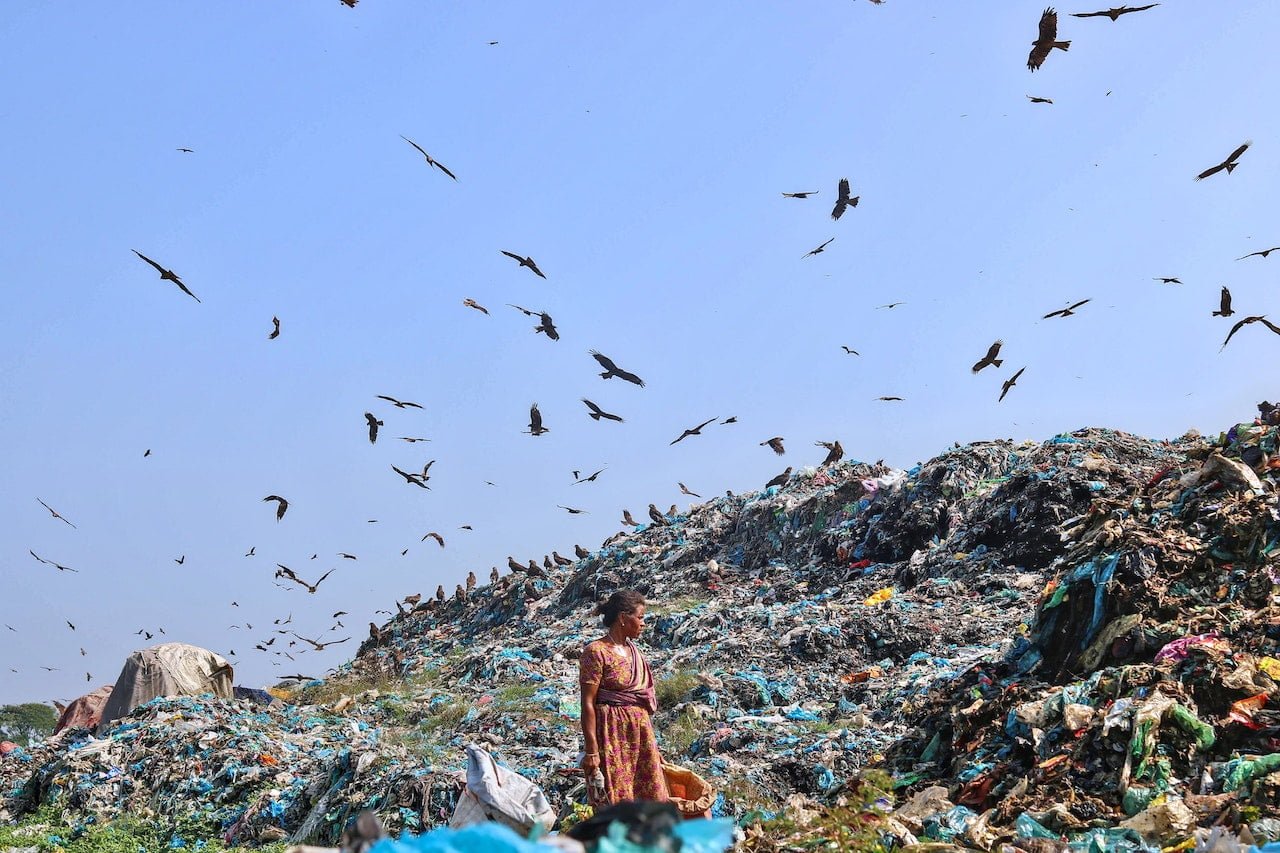What is Waste Colonialism/Colonization?
Posted by Negeen Naikayen on 2024 Feb 2nd
Once upon a time, in the not-so-distant past, the world grappled with a problem that seemed insurmountable – waste. As our consumption habits reached unprecedented levels, so did the mountains of discarded materials. However, amidst this chaotic narrative, a new term emerged - Waste Colonization. It's not a phrase from a dystopian novel or a sci-fi movie, but a harsh reality we are living in. Join us on a journey as we unravel the mysteries of Waste Colonization, exploring the hidden dimension of our global garbage crisis.
Picture it, you’re walking in a serene forest and suddenly, you spot a pile of garbage dumped amid the lovely greenery. How would you feel? Disgusted, right? Unfortunately, this is the harsh reality of our planet. Waste management has always been a pressing issue, and with every passing day, it is getting more complex. The current waste generation figures are alarming, and the traditional methods of waste management such as landfills and incinerators are not enough. Hence, we require novel approaches like waste colonization to tackle this challenge. But what is waste colonization?
What is Waste Colonialism?
Waste Colonialism refers to the global phenomenon where developed nations export their waste to less affluent countries. Picture this: your old electronic gadgets, plastic waste, and discarded textiles embarking on a journey across the oceans, finding a new home in countries struggling to manage their own waste. The repercussions are vast, impacting ecosystems, human health, and exacerbating inequalities between nations.
The Global Trail of Trash: Statistics of Waste Colonization
To comprehend the scale of Waste Colonization, let's dive into some staggering statistics. According to the Global Alliance for Incinerator Alternatives (GAIA), the United States, for instance, exported approximately 69% of its plastic waste in 2020. Shockingly, many of these shipments ended up in Southeast Asian countries, such as Malaysia, Thailand, and Vietnam, where the infrastructure to manage such waste is inadequate.
Citing the Basel Convention, an international treaty that regulates the transboundary movement of hazardous waste, it's alarming to note that some developed nations exploit loopholes, classifying their waste as recyclables while it might be contaminated or difficult to process. The consequence? Toxic waste leaches into soils and water sources, endangering local communities.
The Human Toll:
While statistics paint a vivid picture, it's essential to recognize the human toll of Waste Colonization. In many of the receiving countries, informal recycling sectors spring up to salvage valuable materials from the imported waste. This often involves hazardous working conditions, with workers exposed to toxic fumes, chemicals, and other health risks. The International Labor Organization (ILO) estimates that over 15 million people worldwide are engaged in informal waste picking, often without adequate protection.
Environmental Fallout:
The environmental consequences of Waste Colonization are equally distressing. Plastic pollution in oceans is a well-documented issue, but when we consider the global movement of waste, the problem becomes even more complex. A Greenpeace report highlights that over 187 countries received plastic waste from exporting nations, leading to the contamination of water bodies, destruction of marine ecosystems, and harm to aquatic life.
Seeking Solutions:
As we stand at the crossroads of this global waste crisis, it's imperative to explore sustainable solutions. Advocacy for responsible waste management, stricter regulations, and a shift towards a circular economy that emphasizes reducing, reusing, and recycling are crucial steps.
In the ever-evolving narrative of human impact on the planet, Waste Colonization is a chapter that demands our attention. It's a tale of interconnectedness, where the consequences of our waste transcend borders and affect communities far and wide. As we navigate this complex issue, let us strive for a future where waste is not a burden carried by the vulnerable, but a shared responsibility for all.
After all, the story of our planet is written in the choices we make today.

https://greenandbeyondmag.com/waste-colonialism-modern-day-imperialism/

